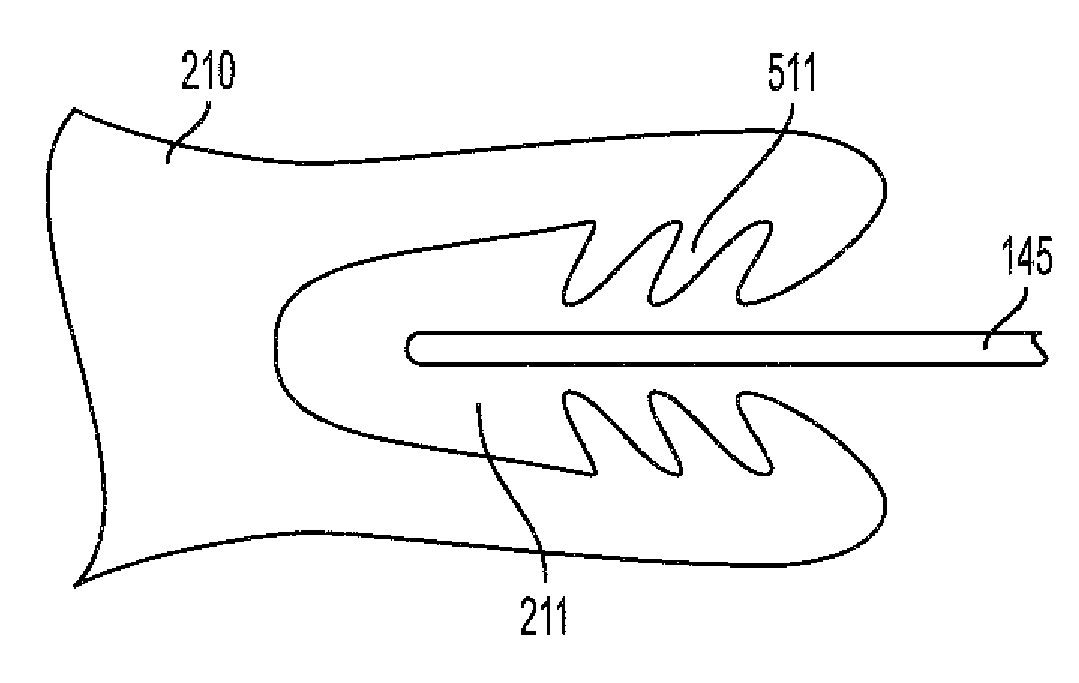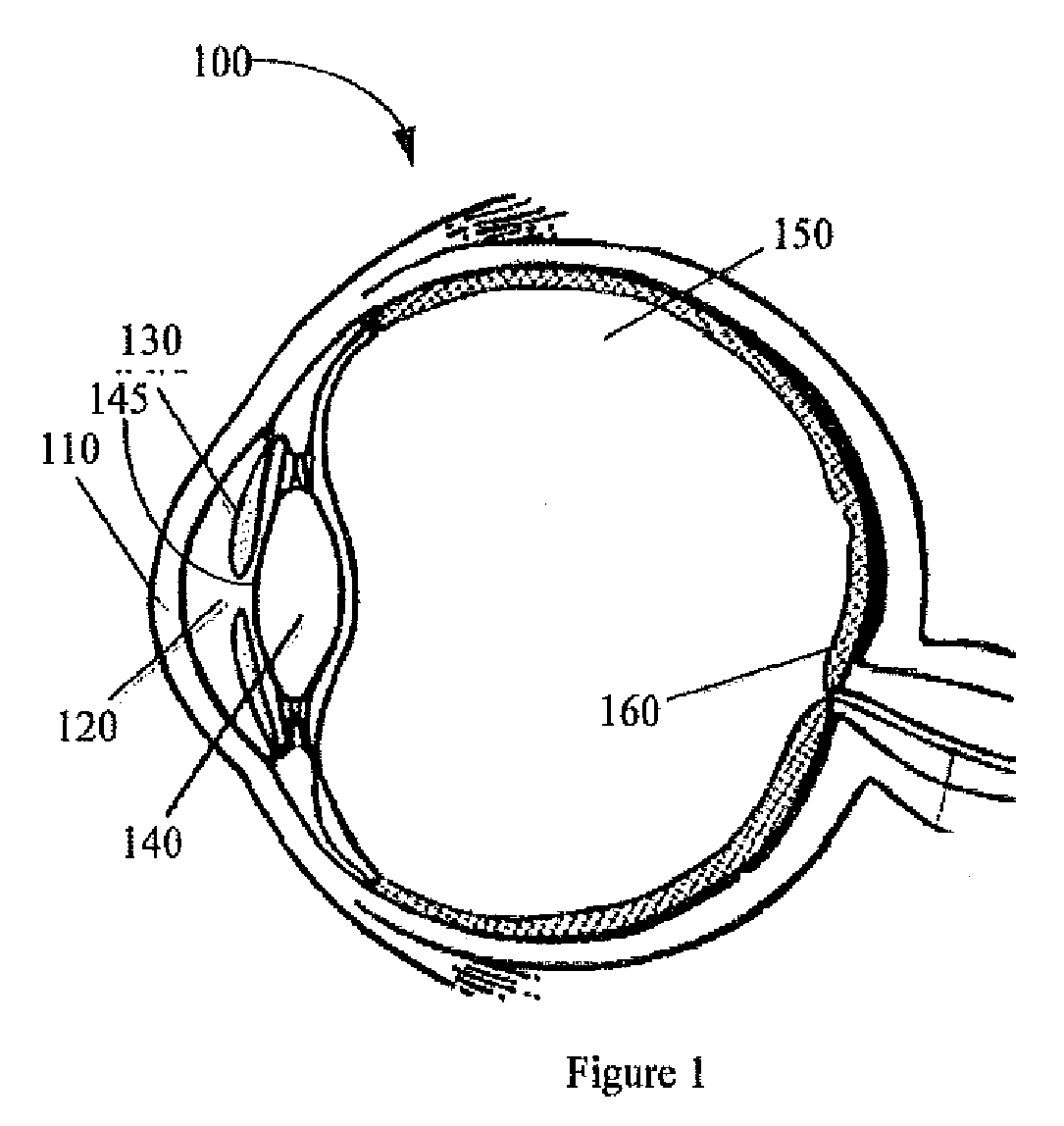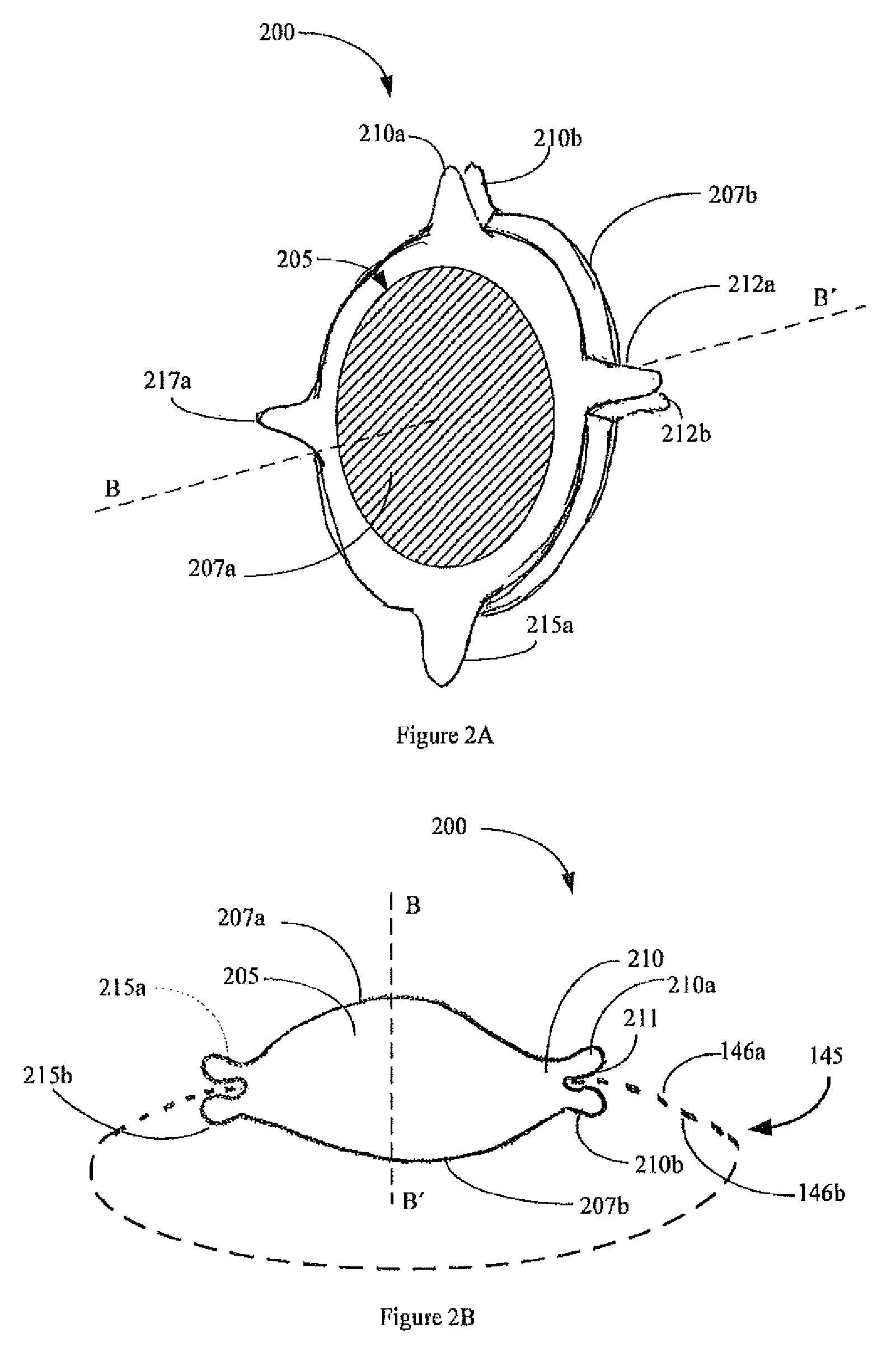Micro-incision IOL and positioning of the IOL in the eye
a micro-incision and positioning technology, applied in the field of intraocular lenses, can solve the problems of impairing the vision of patients, human eye diseases, etc., and achieve the effects of reducing post-surgical recovery time, reducing the size of the incision, and reducing the complexity of the surgical procedur
- Summary
- Abstract
- Description
- Claims
- Application Information
AI Technical Summary
Benefits of technology
Problems solved by technology
Method used
Image
Examples
Embodiment Construction
[0019]It is to be understood that the figures and descriptions of the present invention have been simplified to illustrate elements that are relevant for a clear understanding of the present invention, while eliminating, for the purpose of clarity, many other elements found in typical lenses, lens systems and lens design methods. Those of ordinary skill in the arts may recognize that other elements and / or steps are desirable and may be used in implementing the embodiments described herein.
[0020]FIG. 1 is a schematic drawing of a human eye 100. Light enters the eye from the left of FIG. 1, and passes through the cornea 110, the anterior chamber 120, a pupil defined by the iris 130, and enters the lens 140. After passing through the lens 140, light passes through the vitreous chamber 150, and strikes the retina 160, which detects the light and converts it to a signal transmitted through the optic nerve to the brain (not shown).
[0021]The natural lens 140 is a transparent crystalline bi...
PUM
 Login to View More
Login to View More Abstract
Description
Claims
Application Information
 Login to View More
Login to View More - R&D
- Intellectual Property
- Life Sciences
- Materials
- Tech Scout
- Unparalleled Data Quality
- Higher Quality Content
- 60% Fewer Hallucinations
Browse by: Latest US Patents, China's latest patents, Technical Efficacy Thesaurus, Application Domain, Technology Topic, Popular Technical Reports.
© 2025 PatSnap. All rights reserved.Legal|Privacy policy|Modern Slavery Act Transparency Statement|Sitemap|About US| Contact US: help@patsnap.com



